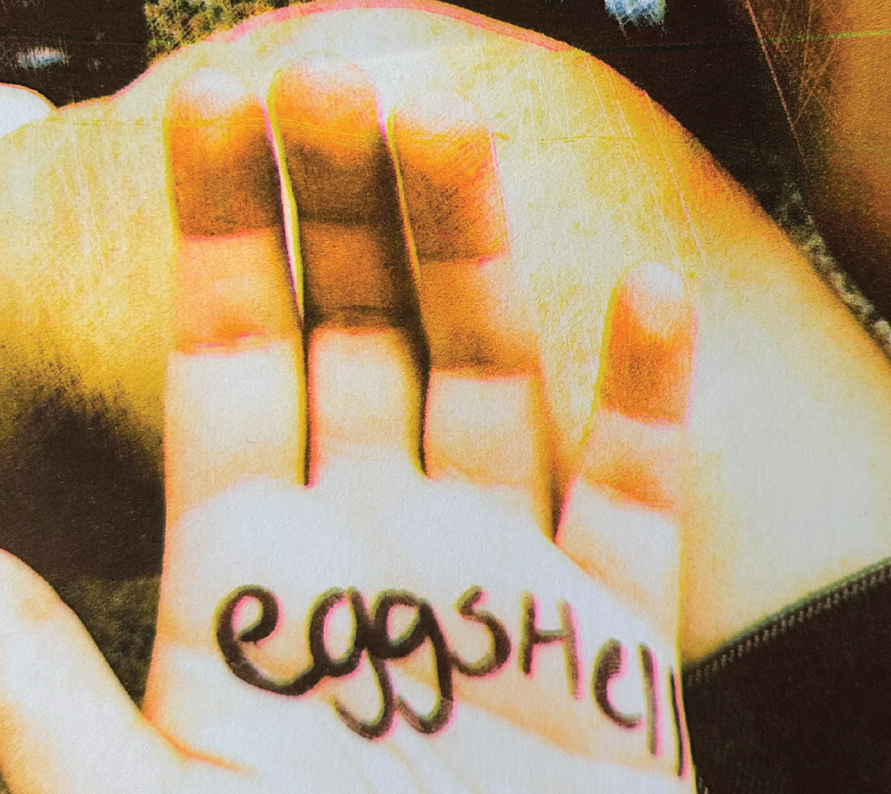Olivia De Zilva details her journey as a writer growing up in suburban Adelaide and its influences in her debut novella Eggshell, due for release in November. In this interview with publicity assistant, Lila Ruddell, Olivia discusses how her writing journey began, authors she admires, and some advice for Eggshell’s main character, Kira.
Olivia De Zilva, the ambitious and multi-talented writer, born and raised in Tarndanya (Adelaide, Australia), has debuted two novels to print this year. Her first, a non-fiction memoir, Plastic Budgie, published by Pink Short Press, and her second being our very own highly anticipated coming-of-age novella, titled Eggshell. Her writing has been published in The Guardian, Australian Poetry Journal, Cordite, Westerly, SBS, among many others, with recognitions across multiple literary reviews. Check out Eggshell and access our exclusive, pre-release offer here!
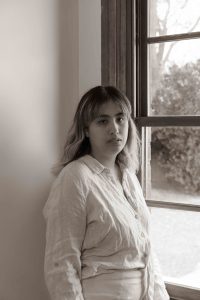
When did your passion for storytelling begin? Did you always want to be a writer?
I was always quite interested in storytelling. As a child, I was a selective mute, and I found that stories and reading were saving graces from loneliness and feeling isolated. I was always interested in imagining worlds that were fantastical and mythical – especially in comparison to growing up in suburban Adelaide. I remember that I would write blurbs for imaginary books all the time – I was just so enthralled with building a world outside of my own. As an aside, my mum and I always used to read gossip magazines when I was growing up. Certainly not the most literary, but they contained so much drama and mysticism for prying eyes. I liked the element of drama, the absurd and surreal that these magazines contained that I actually made my own on scraps of paper. Despite saying that I wanted to pursue other things, I think I would say yes, I always wanted to be a writer and it stemmed from these kinds of bleak and odd experiences. I really enjoyed putting little stories together – whether that be based on Disney movies or gossip columns in New Idea. I liked the ideas that they brought, the creativity they inspired, and the kind of scandalous nature that words can invoke. From an early age, I would say, yes, this is the path that I’ve always wanted to follow and I’m fortunate that I have been given some really great opportunities.
What were your top 3 favourite YA novels growing up? And what are your top 3 favourites now?
I’m not sure if you would call it young-adult, maybe a bildungsroman, or ‘coming of age’ story, but JD Salinger’s The Catcher in the Rye. I think Holden is just so full of shit – and I really liked his unreliability, sardonic interior dialogue and experiences of grief and losing innocence in the backdrop of a frankly gorgeous post-war New York City (which I was also feeling quite the same things at the time). I liked how it took place over one night – and followed Holden through vignettes of his own life. It is absolutely my favourite book and I owe a lot of my writing and ideas to reading it at ten years old in the school library.
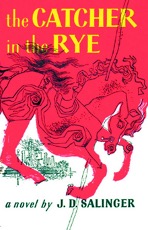 I borrowed it at least 40 times so I could copy down the sentences into the back of notebooks and vision boards.
I borrowed it at least 40 times so I could copy down the sentences into the back of notebooks and vision boards.
Growing up, my favourite young-adult novels were definitely the Jacqueline Wilson ones, Lola Rose and Love Lessons. Again, I love the grit and drama, and Jacqueline Wilson’s world of Council flats, broken families and real world issues (puberty, drugs, love and falling apart) were things that at once enthralled and repelled me from growing up. The third one would have been Hating Alison Ashley by Robin Klein – I related so much to Erica Yurken and Barringa Heights – having grown up similarly. Klein really emphasised what it is like to ‘ache with jealousy’ as a teenage girl, and I was absolutely captivated. I also really liked
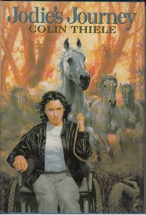 Jodie’s Journey by Colin Thiele – a story about a young woman in the Adelaide Hills who is diagnosed with arthritis and has to stop her show jumping career – how tragic! I was/am obsessed with horses – so all horse literature went absolutely platinum in my house.
Jodie’s Journey by Colin Thiele – a story about a young woman in the Adelaide Hills who is diagnosed with arthritis and has to stop her show jumping career – how tragic! I was/am obsessed with horses – so all horse literature went absolutely platinum in my house.
Now, I would say my favourite young-adult novel is Melina Marchetta’s Looking for Alibrandi. I just loved the voice and tone of the novel — it was so sophisticated (at least for a younger reader) and I loved how Josie had this no nonsense attitude but was so insecure. I was also absolutely in love with both John Barton and Jacob Coote – they definitely encapsulated the white Australian standards of male beauty. I also really related to her struggle as a second-generation immigrant, and her embarrassment and pride about her Italian culture.
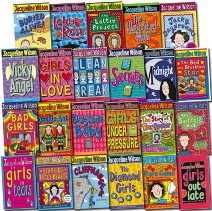 I liked Marchetta’s inclusion of popular culture and Australiana – that was quite endearing for me and encouraged me to include my own favourite references in my work. I think my second two – again – would be the Jacqueline Wilson novels. They hold up for me – and although I can see the absurdity they contain– they really taught me what ‘grit’ is like and how growing up isn’t all Hogwarts and fairy floss. I really like Wilson’s exploration of girlhood in really unconventional and grey settings. She writes with such strokes of beauty and I think that is really captivating.
I liked Marchetta’s inclusion of popular culture and Australiana – that was quite endearing for me and encouraged me to include my own favourite references in my work. I think my second two – again – would be the Jacqueline Wilson novels. They hold up for me – and although I can see the absurdity they contain– they really taught me what ‘grit’ is like and how growing up isn’t all Hogwarts and fairy floss. I really like Wilson’s exploration of girlhood in really unconventional and grey settings. She writes with such strokes of beauty and I think that is really captivating.
What inspired you to write Eggshell? Were you influenced by your own experiences growing up?
I was inspired to write Eggshell because one, I love Adelaide, two, am obsessed with the 2000s, and wanted to explore a mish-mash of both. I think the family setting was something that was always bubbling away in the background. I grew up very closely with my cousins when they were raised by my grandparents in a similar suburb to Lonsdale Heights. My family was certainly very quirky, but they were always very dedicated and determined for us to be happy, not hungry and feel loved. That feeling really inspired me to put words to the page and even though we didn’t quite experience the dysfunction and complexity of Eggshell, I wanted to ensure that some parts of my family were included. Growing up in the early 2000s was really weird, itchy and sometimes hot and sweaty – and I wanted to again, put this to paper, and describe, in lots of detail, how it all at once shaped me, but broke me. That’s really where Eggshell started – an exploration of self, family and identity which slowly splintered into a bit of melodrama and absurdity.
What do you hope young readers will take away from the story?
I hope that young readers will be inspired to be their true selves and follow their own arrow. This novella is all about deconstructing yourself and taping it back together in the best way you can. It may not always be perfect, but in the end, you’ll get there. I tried to emphasise Kira’s authenticity and embracing of her quirks and ‘weirdness’ as something to be celebrated – hence, her relationship with Sam. I also, of course, wanted to highlight the Asian-diasporic experience and how despite being ‘different’, all kids grow up the same, and that people should look past these superficialities. I also want them to question labels, reject them and realise that being categorised by where you come from or what language you speak has no weight on who you really are.
What piece of advice would you give to the protagonist Kira?
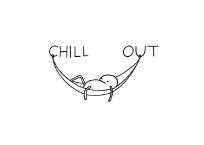
Chill out! I think she’s very neurotic and anxious – well, she was based on me! Definitely chill out, learn to laugh a bit more and not be so worried about the future. In the end, we don’t know what will happen, and if we worry about it, we miss the beauty that does occur along the way.
How does Eggshell set itself apart from other ‘coming of age’ stories?
I think Eggshell doesn’t fall into some of the tropes of so-called ‘Asian-Australian’ YA fiction as it rejects labelling and putting heavy focus on the protagonist’s ethnic background. Sure, Kira is Hong Kong-Australian, but that isn’t the focus of the narrative, rather, a background feature to her own coming of age. I’m not sure how it would set itself apart from other YA novels, though. I would say it’s pretty conventional. Maybe the setting in Adelaide? There aren’t too many YA novels set in Adelaide – and that is pretty cool! Adelaide is both a gross and idyllic place to grow up. It is at once a small pond with lots of big fish. Young people can often feel lost here, want to get out, but, like migrating birds, they always come back.
How did the writing process differ between writing Plastic Budgie and Eggshell?
Both novels follow a similar thread – exploring growing up, some aspects of identity and deconstructing yourself to at once, suit others, then at the end, yourself. They both explore memory and the often uncanny natu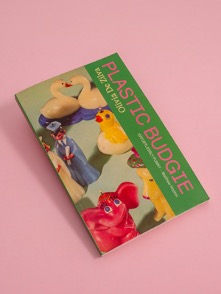 re our memories can invoke in our subconscious and personal development. I would say Plastic Budgie took a lot longer because it is a pretty revealing and vulnerable narrative about my own life and memory. The genre is autofiction, so it contains a lot of things that actually occurred in my life, with a twist of haunting and the uncanny. Eggshell came a lot quicker because it was purely fiction – sure, I pulled from memories and experiences – but a lot of it was based on fantasy. It was a lot more plotting and planning, whereas Plastic Budgie was an exploration of the stream of consciousness and time – so it came in dribs and drabs.
re our memories can invoke in our subconscious and personal development. I would say Plastic Budgie took a lot longer because it is a pretty revealing and vulnerable narrative about my own life and memory. The genre is autofiction, so it contains a lot of things that actually occurred in my life, with a twist of haunting and the uncanny. Eggshell came a lot quicker because it was purely fiction – sure, I pulled from memories and experiences – but a lot of it was based on fantasy. It was a lot more plotting and planning, whereas Plastic Budgie was an exploration of the stream of consciousness and time – so it came in dribs and drabs.
Who have been your biggest inspirations and idols throughout your career?
I really love Freddie Mercury. He’s a great songwriter – but I also love his aesthetic and ability to hide a lot of pain and trauma behind surrealism, absurdity and innuendo. I think he has a really sharp sense of humour and I was quite enthralled by his tongue-and-cheek, flamboyant style of writing and living. In terms of writers, I love Joan Didion and how her memoirs at once feel so detached and journalistic, but then zoom in to really intimate moments where the reader feels like they are watching her through a mirror. I love Annie Proulx and her sprawling stories about loneliness and regret set against a sprawling and angry landscape in Wyoming – I learned to love the short story (and cowboys) from her work. I think in terms of Australian authors – two recents would be Melanie Cheng and Michelle de Kretser. Melanie because of the simplicity of her stories, but the power behind them. And Michelle, because of her deconstructed narratives and obviousness of where the stitches are. I think my honours supervisor Matthew Hooton inspires me a lot too – because he said I could write – before anyone else did.
What are you excited about for the future? Any upcoming works on the horizon?
I’m excited about getting these books off the presses and seeing where they land. I do hope people like them and it’s been great to work on them both! I am currently working on two new manuscripts, but nothing of note has happened with them yet – just the writing part. I hope to get these finished in the next year.
Check out Eggshell and access our exclusive, pre-release offer here!
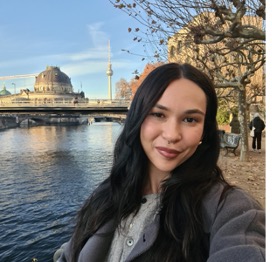
Lila Ruddell is an undergraduate in Writing, Publishing, and Spanish, in her final year. She’s an avid bookworm for all things thriller, horror, and psychological – bonus points for a feminist protagonist. Lila dreams of combining Publishing and her passion for travel by working abroad.

